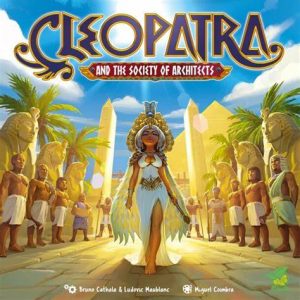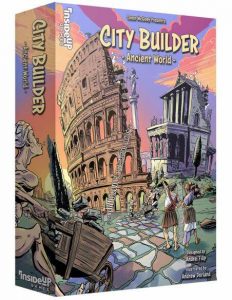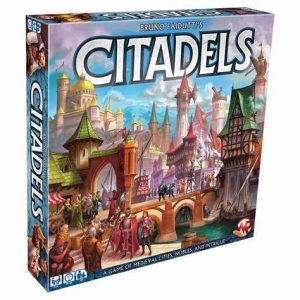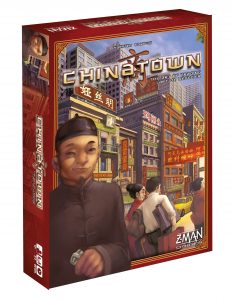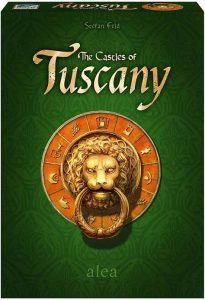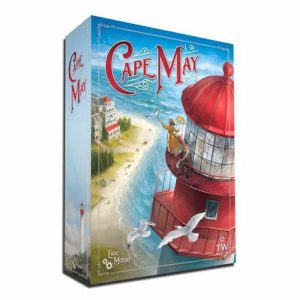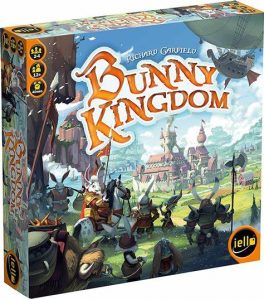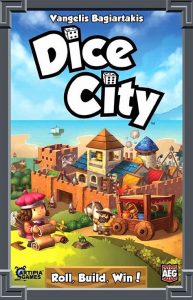
Dice City
The Kingdom of Rolldovia is in turmoil. Her royal highness, the Queen, has decreed that there will be a new capital after the old one was sacked by hordes of barbarians and bandits from the south. As leaders of one of the country’s influential noble families, players vie with each other to establish their provincial city as the best home for Rolldovia’s new capital. You must choose your city’s path in gaining the approval of all others in the kingdom.
Dice City is a “dice-crafting” game in which the locations in your city act as the changing faces of your dice each turn. Use tactics and strategy to press your claim!
You each have several ways to promote your city; create strong armies; construct wondrous buildings; or open up trade routes. The secret is to manage your city and its natural resources carefully to make the best of your fortunes.
Game Mechanics:
- City Building
- Dice Rolling
- Take That
Game Specifications:
- 1 – 4 Players
- 45 – 60 Minutes
- Difficulty Weight 2.03

